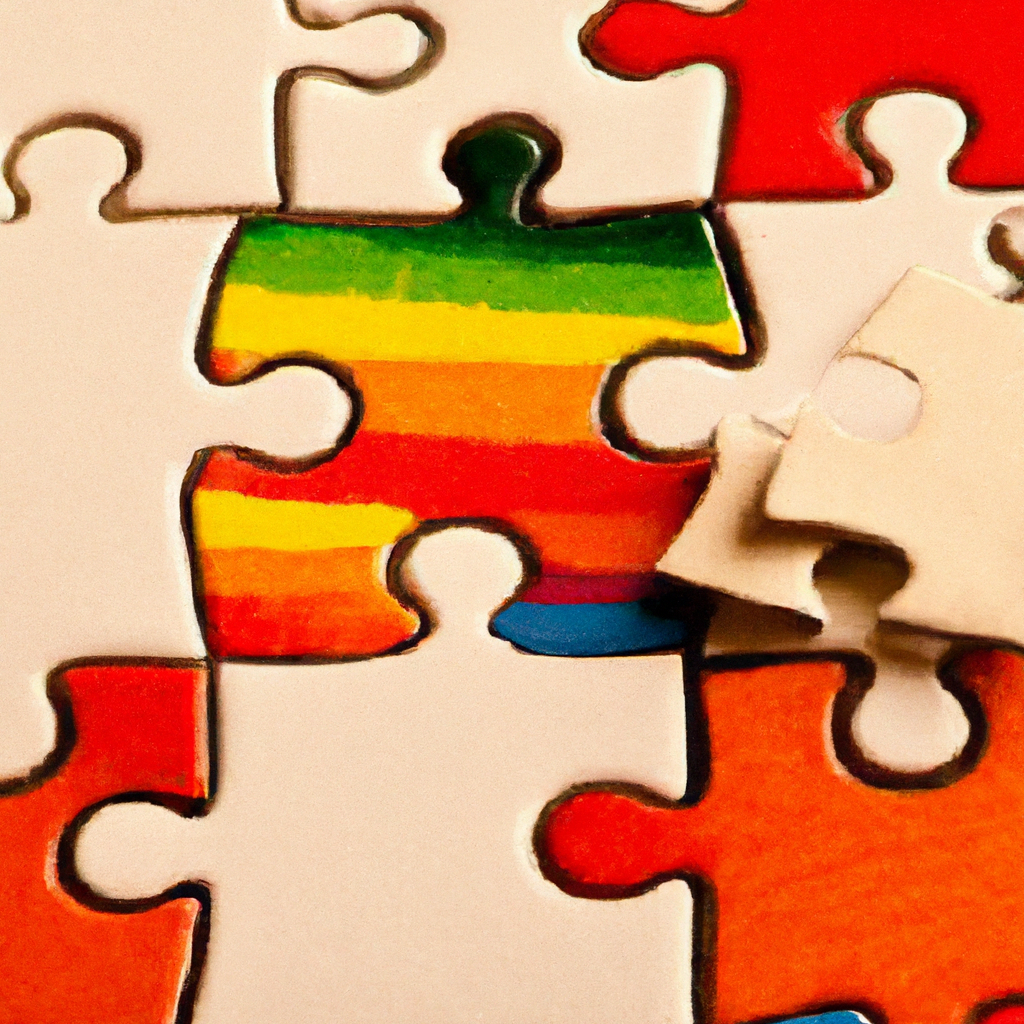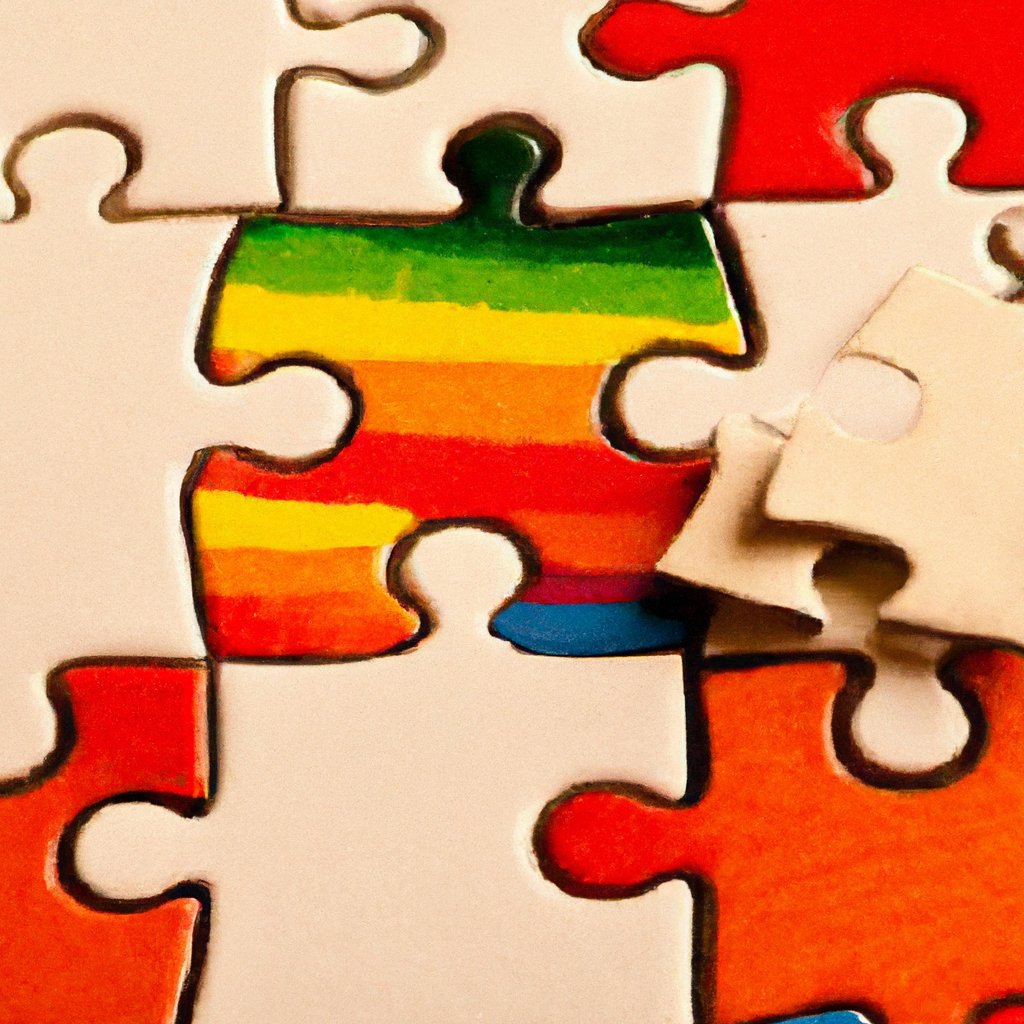
In this article, we will explore various ways you can offer support to LGBTQ+ individuals who are facing mental health challenges. It can be difficult to navigate the complexities and unique struggles that come with being part of the LGBTQ+ community, and knowing how to provide the right kind of support is crucial. Whether it’s a friend, family member, or even yourself, understanding the specific needs of LGBTQ+ individuals and being there for them in a compassionate and inclusive manner can make all the difference in their mental well-being. So, let’s discover some effective ways to show support and create a safe space for those who may be going through a tough time.
Understanding the LGBTQ+ Community and Mental Health
Defining LGBTQ+ Identity
When we talk about the LGBTQ+ community, we are referring to individuals who identify as lesbian, gay, bisexual, transgender, queer, and other diverse sexual orientations and gender identities. LGBTQ+ individuals have their own unique experiences and challenges, which can impact their mental health. It’s important to understand that sexual orientation and gender identity are intrinsic aspects of a person’s identity and should be respected and celebrated.
Common Mental Health Challenges among LGBTQ+ Individuals
Members of the LGBTQ+ community often face specific mental health challenges due to the societal stigma, discrimination, and prejudice they may encounter. Some common mental health issues include anxiety, depression, substance abuse, suicidal ideation, and self-harm. It is crucial to recognize and address these challenges to ensure the well-being of LGBTQ+ individuals.
Creating Safe and Supportive Environments
Promoting Inclusive Language and Behavior
One of the fundamental ways to support the LGBTQ+ community’s mental health is by promoting inclusive language and behavior. Using inclusive language that acknowledges and respects diverse gender identities and sexual orientations can create a more welcoming environment. Avoid making assumptions about someone’s gender identity or sexual orientation, and use gender-neutral language whenever possible.
Addressing Stigma and Discrimination
Stigma and discrimination can have a significant impact on the mental health of LGBTQ+ individuals. It is important to challenge and address these issues by fostering a culture of acceptance and respect. Educate yourself and others on the harmful effects of stigma and discrimination, and actively work to eliminate them in your personal and professional life.
Encouraging Open Dialogue and Education
Open dialogue and education are essential in creating safe and supportive environments for LGBTQ+ individuals. By engaging in conversations about sexual orientation, gender identity, and mental health, we can increase awareness, understanding, and empathy. Encourage open and respectful discussions, provide educational resources, and create opportunities for LGBTQ+ individuals to share their experiences and stories.
Building LGBTQ+ Support Networks
Support networks play a crucial role in the mental well-being of LGBTQ+ individuals. Encourage the establishment of support groups, community centers, and online forums where individuals can connect with others who share similar experiences. These networks provide a sense of belonging, validation, and support, which are vital for mental health.
Access to Mental Health Services
Understanding Barriers to Mental Health Services
LGBTQ+ individuals often face unique barriers to accessing mental health services. These can include lack of culturally competent providers, financial limitations, fear of discrimination or stigma, or limited availability of LGBTQ+-friendly services in certain areas. It is essential to recognize and address these barriers to ensure equitable access to mental health care for all individuals.
Sensitivity and Cultural Competency Training for Mental Health Providers
To better serve LGBTQ+ individuals, mental health providers should receive sensitivity and cultural competency training. This training should include education on LGBTQ+ identities, terminology, and understanding the unique mental health challenges faced by this community. By enhancing provider knowledge and skills, we can ensure that LGBTQ+ individuals receive appropriate and affirming care.
Advocating for LGBTQ+ Inclusive Policies and Services
Advocacy plays a vital role in improving access to mental health services for LGBTQ+ individuals. This includes advocating for policies that protect against discrimination in healthcare settings and promoting LGBTQ+ inclusive services. By working together with organizations and policymakers, we can help create a more inclusive mental health care system.

Supporting LGBTQ+ Friendly Mental Health Resources
Supporting LGBTQ+ friendly mental health resources is crucial for ensuring that there are adequate services available for individuals in need. This can include supporting LGBTQ+ organizations that provide mental health support, advocating for increased funding for LGBTQ+ friendly services, and spreading awareness about available resources within the community.
Building Self-Acceptance and Resilience
Encouraging Self-Exploration and Identity Acceptance
Self-acceptance is an essential component of mental well-being for LGBTQ+ individuals. Encourage individuals to explore and understand their own identity in a safe and non-judgmental environment. Provide resources and information that can help individuals on their journey of self-discovery, and emphasize the importance of self-acceptance and self-love.
Promoting Mental Well-being and Self-Care Practices
Promoting mental well-being and self-care practices is crucial for LGBTQ+ individuals. Encourage individuals to prioritize their mental health by engaging in activities that promote relaxation, stress reduction, and emotional well-being. This can include practices such as mindfulness, meditation, regular exercise, getting enough sleep, and seeking out hobbies and activities that bring joy.
Fostering a Sense of Belonging and Community Involvement
A sense of belonging and community involvement can greatly contribute to the mental well-being of LGBTQ+ individuals. Encourage community engagement and involvement in LGBTQ+ organizations, pride events, and other supportive spaces. By fostering a sense of belonging, individuals can find support, validation, and connection with others who share similar experiences.
Supporting LGBTQ+ Youth with Mental Health Challenges
Creating Safe Spaces in Educational Settings
Educational settings should prioritize the creation of safe spaces for LGBTQ+ youth. This includes implementing policies that explicitly prohibit discrimination based on sexual orientation and gender identity, training teachers and staff on LGBTQ+ issues and mental health, and fostering a supportive environment where all students feel respected and included.
Implementing LGBTQ+ Inclusive School Policies
Inclusive school policies are vital for supporting LGBTQ+ youth’s mental health. These policies should include comprehensive anti-bullying measures, gender-neutral facilities, inclusive sex education, and the inclusion of LGBTQ+ history and contributions in the curriculum. By implementing these policies, schools can foster a positive and accepting environment for all students.
Offering Supportive Counseling Services
Counseling services that are specifically designed to support LGBTQ+ youth are essential. These services should be staffed by mental health professionals who have training in LGBTQ+ affirmative therapy and offer a safe, confidential, and non-judgmental space for youth to express themselves and navigate the challenges they may face.
Educating Peers and Teachers about LGBTQ+ Issues
Education plays a crucial role in creating a supportive environment for LGBTQ+ youth. Peers and teachers should receive training on LGBTQ+ issues, terminology, and the unique challenges faced by LGBTQ+ youth. This education can promote empathy, understanding, and reduce stigma within the school community.
Supporting LGBTQ+ Adults with Mental Health Challenges
Providing LGBTQ+ Affirmative Therapy
Affirmative therapy tailored to the specific needs of LGBTQ+ adults is essential for their mental health. Mental health providers should have knowledge and understanding of the unique challenges faced by LGBTQ+ individuals and provide therapy that is inclusive, affirming, and culturally competent.

Offering Support Groups and Community Resources
Support groups and community resources can provide valuable support for LGBTQ+ adults facing mental health challenges. These groups offer a safe and confidential space for individuals to connect with others who share similar experiences, share coping strategies, and receive support and validation.
Addressing Intersectionality and Multiple Identities
It is crucial to recognize that LGBTQ+ individuals have multiple intersecting identities that can impact their mental health. Factors such as race, ethnicity, socioeconomic status, and disability can intersect with their LGBTQ+ identity and contribute to unique challenges. Mental health support should acknowledge and address these intersectional experiences to provide effective and inclusive care.
Addressing Suicidal Ideation and Self-Harm
Recognizing Warning Signs and Risk Factors
Recognizing warning signs and risk factors for suicide and self-harm is vital for early intervention and prevention. LGBTQ+ individuals face a higher risk of suicidal ideation and self-harm due to the challenges they may face related to their identity. It’s important to be aware of warning signs such as withdrawal, sudden changes in behavior, and expressing hopelessness.
Training on Crisis Intervention and Suicide Prevention
Training on crisis intervention and suicide prevention is essential for individuals working with the LGBTQ+ community. This training equips individuals with the skills and knowledge to identify and respond to mental health crises effectively. By intervening early and connecting individuals to appropriate support, we can help prevent suicide and self-harm.
Promoting Access to LGBTQ+ Friendly Crisis Hotlines and Online Resources
Access to LGBTQ+ friendly crisis hotlines and online resources is crucial for individuals in need of immediate support. These resources provide a safe and confidential space for individuals to seek help, receive counseling, and access information on mental health and crisis management. Promoting awareness of these resources ensures that individuals can reach out for help when they need it most.
Promoting Legal Protections and Equal Rights
Advocating for LGBTQ+ Inclusive Laws and Policies
Advocacy for LGBTQ+ inclusive laws and policies is essential for the well-being of the community. This includes advocating for laws that protect against discrimination based on sexual orientation and gender identity, ensure equal access to healthcare, housing, and employment, and promote LGBTQ+ rights and visibility in society.
Fighting Against Conversion Therapy
Conversion therapy, also known as “reparative therapy,” is a harmful and discredited practice that seeks to change a person’s sexual orientation or gender identity. Advocating for a ban on conversion therapy is crucial to protect LGBTQ+ individuals from the harm and psychological trauma associated with these practices.
Supporting Efforts for Gender Identity Recognition
Supporting efforts for gender identity recognition is essential for the mental health and well-being of transgender and non-binary individuals. This includes advocating for legal recognition of gender identity, ensuring access to appropriate healthcare, and promoting inclusive policies and practices that respect and affirm gender diverse individuals.
Taking Care of Mental Health Allies
Educate Yourself on LGBTQ+ Mental Health Challenges
As an ally, it’s important to educate yourself on the specific mental health challenges faced by LGBTQ+ individuals. By learning about these challenges, you can better understand and support LGBTQ+ individuals in your personal and professional life.
Support LGBTQ+ Mental Health Organizations
Supporting LGBTQ+ mental health organizations is a meaningful way to contribute to the well-being of the community. These organizations provide valuable resources, counseling services, support groups, and advocacy efforts. Consider volunteering, donating, or raising awareness for these organizations to support their important work.
Seek Supervision and Support from Professionals
Allies who are working in mental health or related fields should seek supervision and support from professionals with expertise in LGBTQ+ mental health. This ensures that your support is grounded in best practices and provides you with the necessary guidance and knowledge to effectively support LGBTQ+ individuals.
Seeking Professional Help and Therapy
Finding LGBTQ+ Affirmative Mental Health Providers
When seeking professional help and therapy, it is essential to find mental health providers who are LGBTQ+ affirmative. These providers have the knowledge, understanding, and experience to provide culturally competent care. Look for providers who have received training in LGBTQ+ affirmative therapy and have experience working with LGBTQ+ clients.
Navigating Health Insurance Options
Navigating health insurance options can be challenging, but it is crucial for accessing mental health services. Advocate for insurance plans that cover LGBTQ+ affirmative therapy and other mental health services. If you encounter barriers related to insurance, reach out to LGBTQ+ organizations or mental health advocacy groups for guidance and support.
Exploring Different Therapeutic Approaches
There are various therapeutic approaches that can be effective in supporting the mental health of LGBTQ+ individuals. These can include cognitive-behavioral therapy, trauma-focused therapy, group therapy, and other evidence-based approaches. Collaborate with your mental health provider to explore different approaches and find what works best for you.
In conclusion, supporting LGBTQ+ individuals facing mental health challenges requires a comprehensive and multi-faceted approach. By promoting inclusive environments, advocating for LGBTQ+ rights, and ensuring access to affirming mental health services, we can create a society where the mental well-being of LGBTQ+ individuals is prioritized and respected. Remember, as an ally, your support and understanding can make a significant difference in someone’s life, so let’s work together to promote positive mental health for all.




